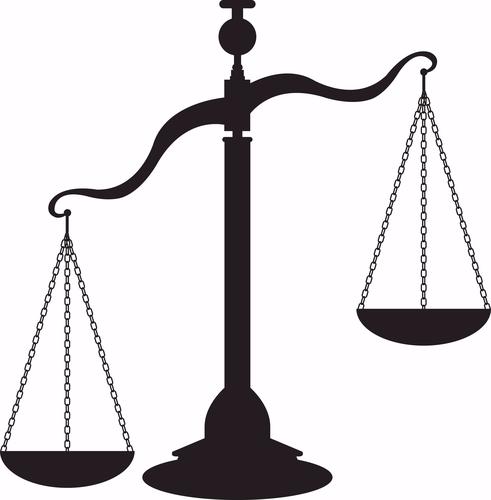
Here are a few things that often get incorrectly classified as legalism: Legalism is not moral excellence. With the Holy Spirit in our lives, we are capable of godliness, and that should be our aim, with His help. Legalism is not holding to what the Bible actually says in the face of a changing culture. If the Bible calls it sin, we're not legalistic to agree with God. Legalism is not having conservative or even old-fashioned preferences (such as preferring more traditional church services while someone else might prefer more contemporary). Legalism is not having a tender conscience about something, or a different standard about something than someone else. Romans 14:23 says, "...for whatsoever is not of faith is sin." This whole passage is about how Christians often have different convictions.

Some people get so concerned about being legalistic that they go the opposite extreme and give in to license. That is, indulging in things the Bible calls sin, since, obviously, God's grace saves us, so we don't have to be good, right? Romans 6:1 answers this cavalier attitude: "What shall we say then? Shall we continue in sin that grace may abound? God forbid!" When we get saved, we have a new nature! We have the Holy Spirit in our hearts, making us more like Jesus. Sin doesn't give us the pleasure it once did. The Holy Spirit convicts us when we sin. This is the sanctification process. God's grace is there for us. We will sin, and we have the assurance that God is on our side. But we don't have licence to go out and sin. That doesn't please the Lord.
Here are a few examples of legalism from my own experiences (you may have had different experiences, and I'd enjoy it if you shared it in the comments). When I was out of high school, I wanted to find a college/career Bible study at a local church (our church didn't really have that). I called every church in our phone book (yes it was that long ago!). I finally found one that looked like it had a good college group. I showed up, excited to get involved. I was in for a shock. The pastor stopped me outside and asked me, "Do you own a King James Bible?" Stunned, I nodded. "Good," he said seriously. "You're probably saved then." Whoa! He didn't ask me what I believed about Jesus! Just wanted to make sure I owned the "right" version of the Bible. I went into the college group, and was in for more surprises. The group leader told me in a perfectly normal voice, "We've been doing a study about New Age Bibles like the NIV." I thought he was joking at first, and I expected everyone to laugh. I almost did, but then I saw the very serious expression on his face. I felt like I was kind of stuck, so I stayed for the study, but it was just comparing random verses to show how the King James and New International Version were different. They didn't even establish that the King James was correct or that the NIV was wrong. They just took as a given that the King James was right. Bible versions is a very interesting topic to me, and I did a major college project on it, but it's a subject for another day. As far as legalism goes, was it wrong for this church to use the King James Version? Not at all. It is a good translation that has served Christianity for four hundred years. I enjoy reading from it. Using the King James, or preferring it over the NIV, wasn't the legalism. Elevating it to the level of salvation, and referring to the NIV as "new age" are where this church was legalistic. Instead of teaching those in the study to love Christ and His word, they taught us to be suspicious of other believers who used the NIV. I saw this ridiculous little picture that I share in order to make my point of how legalistic this stuff can be. It's it ridiculous?

I have known Christians who were very stuck on certain terms, and if I didn't use their "magic words" I wasn't as godly as them. They preferred the phrase, "Put your faith in Christ alone for salvation," which I have no problem with, but if I slipped and said, "Receive Christ as your Savior," or the ever-dreaded, "Ask Christ into your heart" (both of which are biblical, by the way), these people just about bit my head off and had to lecture me about how ungodly I was. This is legalism. Many of these people also tended to separate themselves from other believers who held different positions on certain things (having nothing to do with salvation or godliness), such as Christ's return, the 10% tithe, predestination, spiritual gifts--that sort of thing. It is okay to have beliefs and positions about these things. In fact, we should. But it isn't right to divide ourselves from those who love Jesus just as much, but happen to interpret a few of these scriptures differently.
Some believers are too stuck on their denomination--or in the case of Southern California Christians--"non-denominational" affiliations that function exactly the same as denominations but are supposedly much more spiritual. I'm going to say this just a moment before moving on. Denominations are not wrong. They are a result in church history, and there is nothing wrong with being affiliated with one. A church being part of an established denomination is often a good way for others to know where that church stands and what they believe. It also provides support and accountability from others in the denomination. On the other hand, there is also nothing wrong with a church being independent and unaffiliated. Sometimes that frees a church from pressures and gives more opportunity to just do ministry. Neither is right, neither is wrong. Elevating denominations (as I often saw in the Midwest) or elevating "non-denominationalism" (as is very prevalent in Southern California) is really legalism. Just go to church and worship Jesus.
There are a lot of other examples I could give, but you get the idea. When I am around the types of legalism I mentioned above, I always feel like I'm walking on eggshells, and I know I'm going to offend them. It's a lot of pressure. God doesn't want that for us. He frees us from that bondage.
Why would any Christian want to be legalistic? There are actually several reasons legalism can be attractive and appealing. If you're like me, you're a rule-follower. You like to know where the line is, so you don't cross it. You like to know your parameters. Legalism gives us that line. That assurance that we're not overstepping our bounds. Unfortunately, Romans 8:3 tells us that the law (legalism) is weak because of our sinfulness. We are not capable of keeping all the laws, which is the whole reason Jesus had to die. The Holy Spirit empowers us to honor God. But it can be very easy to fall into legalistic patterns. Other reasons people tend toward legalism is because it feeds the ego. To live at a higher standard than someone else feeds one's pride. To say, "Wow, so-and-so does this, and I don't." It is reminiscent of the pharisee and the tax collector (Luke 18:9-14). The Pharisee bragged about all the good stuff he was doing in his public prayers, while the tax-collector humbly repented of his sins. I think some of the most legalistic Christians I have ever come across were Bible college students...but most of them balanced out after they graduated and interacted with others more.
How do we avoid the trap of legalism. First, remember that all have sinned. Your sin is not better or worse than anyone else's. Second, remember that those of us who are saved are all equally saved, regardless of what Bible version we use, whether our church sings hymns or modern worship, whether we're part of a denomination or not, where we stand on different theological issues, or how long we've been saved. Third, thank Jesus for your salvation and for working in your life. Four (and this is the hard part) ask God to reveal to you ways that you need to rely more on His grace, instead of legalism (we all struggle with it!).
With God's help, we can grow in grace (Second Peter 3:18)!
No comments:
Post a Comment